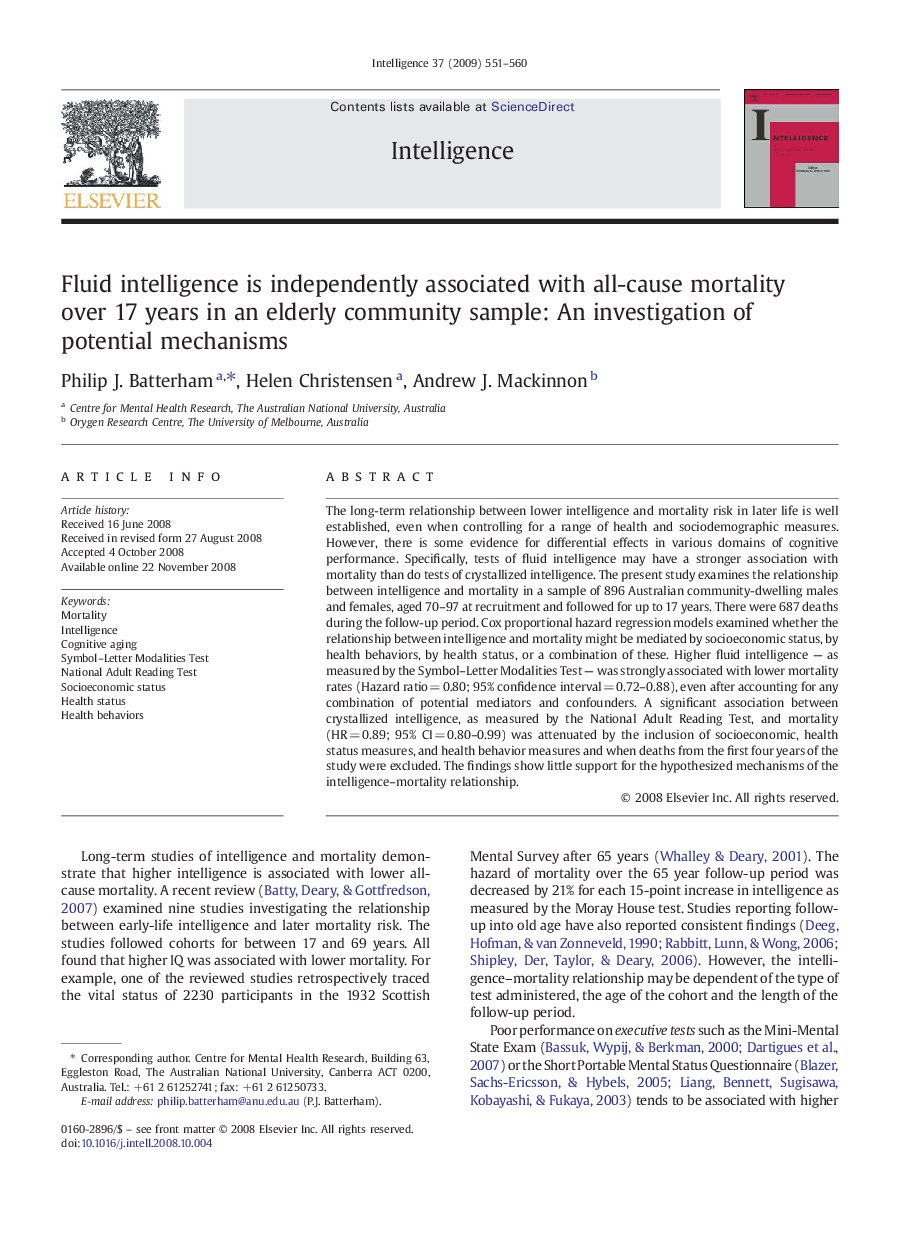| Article ID | Journal | Published Year | Pages | File Type |
|---|---|---|---|---|
| 10459470 | Intelligence | 2009 | 10 Pages |
Abstract
The long-term relationship between lower intelligence and mortality risk in later life is well established, even when controlling for a range of health and sociodemographic measures. However, there is some evidence for differential effects in various domains of cognitive performance. Specifically, tests of fluid intelligence may have a stronger association with mortality than do tests of crystallized intelligence. The present study examines the relationship between intelligence and mortality in a sample of 896 Australian community-dwelling males and females, aged 70-97 at recruitment and followed for up to 17 years. There were 687 deaths during the follow-up period. Cox proportional hazard regression models examined whether the relationship between intelligence and mortality might be mediated by socioeconomic status, by health behaviors, by health status, or a combination of these. Higher fluid intelligence - as measured by the Symbol-Letter Modalities Test - was strongly associated with lower mortality rates (Hazard ratio = 0.80; 95% confidence interval = 0.72-0.88), even after accounting for any combination of potential mediators and confounders. A significant association between crystallized intelligence, as measured by the National Adult Reading Test, and mortality (HR = 0.89; 95% CI = 0.80-0.99) was attenuated by the inclusion of socioeconomic, health status measures, and health behavior measures and when deaths from the first four years of the study were excluded. The findings show little support for the hypothesized mechanisms of the intelligence-mortality relationship.
Keywords
Related Topics
Social Sciences and Humanities
Psychology
Experimental and Cognitive Psychology
Authors
Philip J. Batterham, Helen Christensen, Andrew J. Mackinnon,
